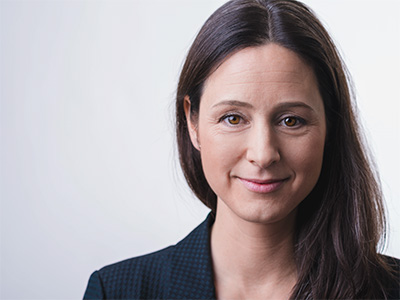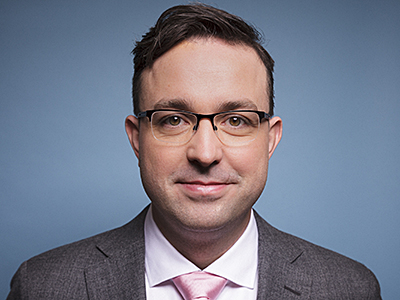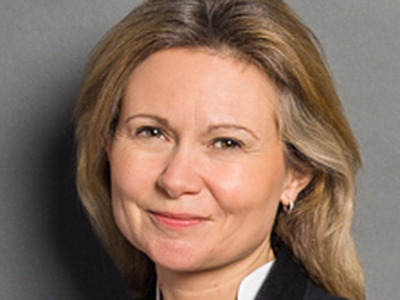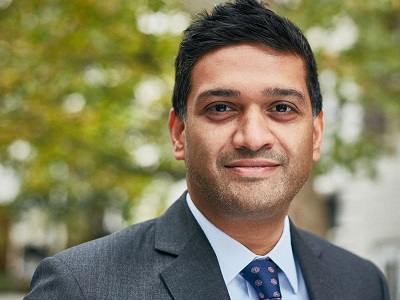SEPs, medical devices, e-cigarettes: Biggest UPC battles reveal broad court remit
By the end of 2023, the Unified Patent Court had a total of 160 filed cases, with the three biggest battles being fought by Panasonic against Oppo and Xiaomi, Dexcom against Abbott, and NJOY against Juul and VMR. The pan-European court is thus the epicentre of global patent battles which encompass a broad range of technologies – and is not, as some feared, purely the preserve of telecommunication cases.
23 January 2024 by Mathieu Klos
The number of cases at the Unified Patent Court increased significantly again at the end of 2023. This is mainly due to defendants filing many counterclaims for revocation, following the filing of infringement lawsuits in the first two months of the UPC.
As 2023 turned into 2024, according to the UPC’s data the court recorded 160 cases. Of these, 48 proceedings were counterclaims for revocation. While the UPC lists these as separate cases, they all belong to an existing infringement suit. Interestingly, among the top five filed cases are three medical devices cases, one concerning e-cigarette technology, and one SEP case. The UPC is not, therefore, purely a forum for telecommunication disputes.
UPC on the way to 200
In total, alongside the 48 counterclaims, the UPC case load includes 67 infringement actions and 24 revocation actions, as well as 19 applications for provisional measures. There is also an action for damages and a declaration of non-infringement.
However, UPC figures are artificially inflated because each defendant must submit a separate counterclaim of revocation. For example, up to six Xiaomi subsidiaries have filed such counterclaims against the same Panasonic patent. But this is not the only reason why the dispute between Panasonic, and defendants Oppo and Xiaomi, is currently the most extensive at the UPC.
A few cases are still only visible to authorised representatives in the court’s CMS system, but most of the 160 cases are publicly accessible in the case search on the UPC website.
Medical device cases in the lead
JUVE Patent’s analysis of the publicly accessible cases shows that 29 medical device cases dominate the total. Here, corresponding counterclaims for revocation are not included. Proceedings belonging to the broad category of consumer goods and mobile phone patents follow with 23 proceedings apiece. Prior to the UPC launch, many experts expected a dominance of mobile phone proceedings. So far, however, this has not occurred.
The remaining cases are broadly distributed across vastly different technologies or sectors, such as 3D printing, food, mechanical engineering, forestry and lighting technology.
The three largest proceedings also reflect this technical breadth.
- Panasonic against Oppo and Xiaomi over SEPs
- NJOY against Juul and VRM over e-cigarette technology
- Dexcom against Abbott over glucose-monitoring devices
In fourth and fifth place are two other major medical device cases: Edwards Lifesciences against Meril Life Sciences, and 10x Genomics against NanoString.

Miriam Kiefer
Major UPC fight over twelve SEPs
Panasonic has filed 24 lawsuits against Xiaomi and Oppo in Europe, including twelve infringement claims at the UPC local divisions in Mannheim and Munich. All patents-in-suit are relevant for the WCDMA and LTE standards.
With this number, the case is probably not only one of the largest in Europe, but also the largest at the UPC. Indeed, the full extent of the UPC battle became public at the turn of the year.
Oppo and Xiaomi had submitted their statements of defence, including a high number of counterclaims for revocation against the Panasonic patents. Currently, the UPC case search lists 25 counterclaims.
In some cases, up to six Xiaomi subsidiaries attacked a single patent. The written arguments are unlikely to differ substantially.

Rien Broekstra
UK goes FRAND-first
The dispute is still in its infancy; Panasonic only filed its claims in July 2023. The Japanese company has also launched actions against the two Chinese implementers at the UK High Court and at the regional courts in Mannheim and Munich, as well as in China.
In mid-November, the UK ordered an accelerated procedure to first decide on a global FRAND rate, before entering into the often-lengthy technical trials.
Thus, this summer and autumn will be decisive for Xiaomi and Oppo. Since the UPC will hear the first cases in June, judges could issue the first rulings in the fourth quarter of 2024. Xiaomi and Oppo may then face their first injunctions on the continent.
UPC put to the test
Therefore, Xiaomi and its lawyers from Kirkland & Ellis had pushed for the UK to rule on the FRAND rate before the UPC and German courts. The dispute could become a model for the interplay between the UK and the UPC in global SEP disputes.
In the UK, Oppo relies on Pinsent Masons while Bristows is active for Panasonic. But the majority of the dispute at the UPC and in Germany rests on the shoulders of Christopher Weber, Christof Augenstein and Miriam Kiefer of Kather Augenstein.
Xiaomi is relying on two teams from Freshfields Bruckhaus Deringer and Hogan Lovells, led by Wolrad Prinz zu Waldeck und Pyrmont and Andreas von Falck, respectively. Oppo leans on Clifford Chance led by Tobias Hessel and Vossius Brinkhof UPC litigators led by Rien Broekstra and Andreas Kramer.
Vapes subject to revocation actions
In September, NJOY launched one of the most extensive litigation campaigns in Europe’s e-cigarette industry. Henrik Holzapfel of McDermott Will & Emery has so far filed ten revocation actions for NJOY Netherlands against two competitors, Juul Labs and its subsidiary VMR Products, at the Paris central division.
JUVE Patent is currently not aware of any further UPC actions. This means, of the three biggest disputes, it is the only one to revolve exclusively around revocation actions.

Bernhard Thum
Bernhard Thum of Munich-based patent attorney firm Thum IP represents the two defendants. According to JUVE Patent information, lawyers from Bardehle Pagenberg also support the patent attorney. Thum IP already represents Juul in the opposition proceedings at the EPO, although there are no parallel national proceedings pending in Europe.
Active in the US
In June 2023, Juul Labs filed several patent infringement proceedings against NJOY in the US, with NJOY later launching its counterclaims. According to press reports, both companies launched several infringement, revocation and ITC actions against each other.

Anne-Charlotte Le Bihan
The dispute is particularly interesting because Marlboro maker Altria Group bought Juul for $12.8 billion in 2018.
However, after the US Food and Drug Administration expressed concerns about its Juul products, Altria acquired a stake in NJOY in March 2023.The patent dispute between the two companies began shortly afterwards.
Dexcom and Abbott reaches UPC
Probably one of the biggest and most intense global battles makes it to third place in the UPC case total. Dexcom and Abbott are fighting over glucose-monitoring devices before the courts in Germany, Spain, the UK and the EPO. The two companies are also facing off in the US.
Developments at the UPC since last summer show how relentlessly the two companies are fighting. In summer, Dexcom struck first with infringement actions against Abbott before the UPC at the Munich local division and the Paris local division regarding four patents. Up to now, Abbott has also filed 18 revocation counterclaims, as well as four further infringement actions, against Dexcom. Most recently, Dexcom filed a fifth infringement claim at the Düsseldorf local division.

Dietrich Kamlah
In the meantime, national patent courts have ensured that neither company is gaining an advantage. A recent UK decision found two Abbott and two Dexcom patents invalid.
The dispute will now enter the next round in Germany, where proceedings concerning Abbott’s EP 3 370 045 will take place on 31 January. A hearing on Dexcom’s EP 3 928 688 takes place in March.
International firms lead charge
While Dexcom relies on Paris-based Bird & Bird partner Anne-Charlotte Le Bihan for the UPC proceedings in Paris, Quinn Emanuel Urquhart & Sullivan frontman Marcus Grosch runs the case in Munich. He also runs the national proceedings in Germany. Bird & Bird is involved in the UK national proceedings.
Abbott turned to its regular advisors Taylor Wessing in both the UK and Germany, as well as at the UPC. Munich-based Dietrich Kamlah is lead partner in Germany and at the UPC, while a London team around five partners is leading the UK proceedings.

Andreas von Falck
Numerous patent attorney firms are also involved on both sides.
Heart-valve technology in play
In fourth and fifth place are two cases revolving around life sciences technologies. Edwards Lifesciences and Meril Life Sciences have battled it out in the new court since the first days of its launch in June.
The intense dispute over heart-valve technology has also run for several years before national patent courts. The parties have an especially strong focus on Germany, the UK and the EPO.
Meanwhile, four infringement and one PI claim by Edwards against Meril are pending at the UPC’s Nordic Baltic regional division and Munich local division. Meril responded with a revocation action against Edwards’ EP 3 646 825, alongside six counterclaims for revocation by various Meril companies against EP 825 and EP 2 628 464.

Siddharth Kusumakar
Firms from all over
A revocation action at the Paris central division and counterclaims for revocation at the Munich local division against EP 825 are now pending.
As such, the Munich local division will soon decide whether to consolidate the revocation actions, as well as which courts will hear them.
Edwards relies on Powell Gilbert around lead partner and coordinator Siddharth Kusumakar, lawyers from Bird & Bird, Swedish firm Gulliksson, and Thum & Partner in the UPC dispute. Other firms are also involved in national proceedings at the EPO.
Hogan Lovells around lead partner Andreas von Falck, as well as French firm Gide Loyrette Nouel and Regimbeau, represent Meril. Other law firms are also involved in national proceedings and at the EPO. Kirkland & Ellis is coordinating the proceedings in the background.

Tilman Müller-Stoy
Awaiting the first appeal ruling
The dispute that led to the first public hearing at the UPC Court of Appeal in December has recently caused a stir. It is also one of the first complaints filed with the UPC.
In the court’s initial days, 10x Genomics applied for a PI against NanoString‘s CosMx Spatial Molecular Imager instruments and CosMx reagents for RNA detection in the UPC jurisdictions.
The US-based company alleges that the use and distribution of NanoString’s CosMx products infringe European patents EP 4 108 782 and EP 2 794 928. Both patents belong to Harvard University and protect a spatial profiling technology.
In the meantime, 10x Genomics has filed three additional infringement proceedings against NanoString and competitor Vizgen. A revocation action against EP 928, and one counterclaim for revocation each from NanoString and Vizgen, are also pending.
Action in Munich

Oliver Jüngst
Nationally, 10x Genomics and NanoString are also facing off at the Munich Regional Court. Here, as at the UPC, a team from Bardehle Pagenberg led by Tilman Müller-Stoy is representing 10x Genomics. A Bird & Bird team led by Oliver Jüngst works for NanoString.
Quinn Emanuel, alongside White & Case lawyer Stefan Papastefanou, have taken over the defence of Vizgen at the UPC.
The Court of Appeal has not yet announced when it will deliver its judgment in the appeal in the PI proceedings concerning EP 782. The Munich local division issued an injunction against NanoString in September.
The UPC Court of Appeal in Luxembourg then heard NanoString’s appeal in December. The ruling is already considered to be a landmark decision, due to the many unresolved legal issues.
Today it became public that 10X Genomics is also challenging another competitor at the UPC, after filing a PI proceeding against Curio Bioscience at the Düsseldorf local division. The Palo Alto-based company relies on Carpmaels & Ransford.
